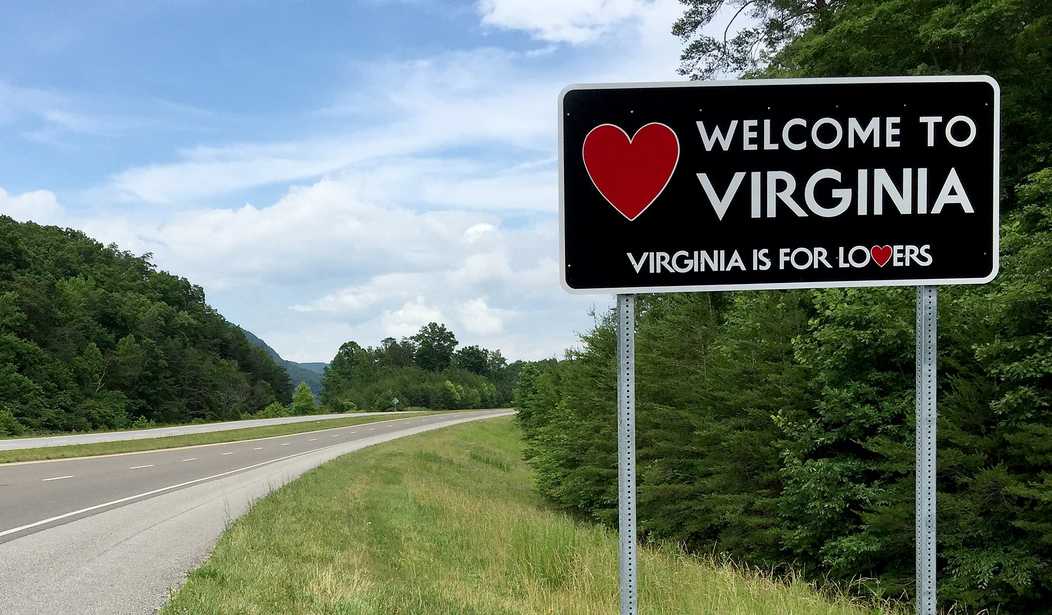This year, a lot of attention is focused on the Virginia state elections. And it’s understandable why. Four years ago, Gov. Glenn Youngkin had a remarkable late surge that took him over the finish line, and many wondered if he had the secret sauce to more GOP victories in the future. Virginia is still technically a swing state, and both parties fight tooth and nail to win there, but is it really the swing state we think it to be?
The last time the Commonwealth voted Republican in a presidential election was in 2004, for George W. Bush. Since then, Virginia has steadily shifted blue. Reclaiming Virginia is a longstanding goal of the GOP, but this year’s elections offer little hope that this is possible in the near future.
Youngkin proved in 2021 that Virginia voters would rally behind cultural sanity—parental rights, opposition to critical race theory, and pushback against radical gender ideology. His upset win briefly resurrected the idea that Trump (and by extension, his populist message) could make Virginia competitive again in 2024. That didn’t happen. Now, we’re in the middle of a cycle that tends to swing against the party in power.
Of course, the Democrats thought this year’s elections would be a cakewalk, and now they’re not. It wasn’t all that long ago that Democrats appeared on the verge of sweeping the top three executive offices, but that was before everything blew up. Suddenly, the political terrain has shifted under their feet, thanks to an ugly scandal that makes “mean tweets” look like kindergarten squabbles.
In 2022, then-Delegate Jay Jones, the Democratic candidate for attorney general, sent a series of vile texts to Republican colleague Carrie Coyner. Jones wrote that if he had a gun and two bullets in a room with Adolf Hitler, Pol Pot, and then-Virginia House Speaker Todd Gilbert, he’d shoot Gilbert twice. He even called Coyner to say he wanted Gilbert’s wife to “watch their children die in her arms.” When Coyner told him how disturbed she was, Jones doubled down: “Only when people feel pain personally do they move on policy.”
ICYMI: Could This Torpedo Mamdani’s Campaign?
The texts may be two years old, but the timing couldn’t be worse for Democrats. In an America still reeling from political violence—especially after the assassination of Charlie Kirk and the explosion of left-wing extremism—Jones’ words aren’t just gross; they’re radioactive. They land squarely in the center of voters’ growing unease about a Democratic Party that preaches tolerance while normalizing political violence.
For Republicans, the scandal has been a lifeline after months of infighting. Democrats had been cruising toward victory, but Jones’ texts ripped the narrative apart and gave the GOP something tangible: a moral contrast. Unfortunately for the right, moral contrast doesn’t always translate into electoral wins.
During the recent governor's debate, Winsome Earle-Sears went on the offensive, challenging Abigail Spanberger so relentlessly that the ex-CIA, three-term congresswoman spent most of the night stammering through non-answers. It was a terrible performance—unless your goal was to confirm every stereotype about evasive politicians. Between Spanberger’s debate stumble and the Jay Jones implosion, you’d think Republicans would be coasting to victory. Yet polls suggest Spanberger still holds the advantage, and Jones, while he’s fallen behind, could still survive his scandal. That tells you everything about where Virginia stands in 2025. In a true swing state, the election would be over right now.
Even if Jason Miyares manages to defeat Jones, it will be because of those grotesque texts—not because Virginia is swinging back red. The scandal is an outlier, not a trend line. The state’s political gravity still pulls left, powered by the federal workforce in the north and suburban liberals who vote blue no matter how badly their candidates behave.
Republicans will need more than Democratic self-destruction to reclaim Virginia. Until then, Virginia isn’t purple—it’s pale blue.








